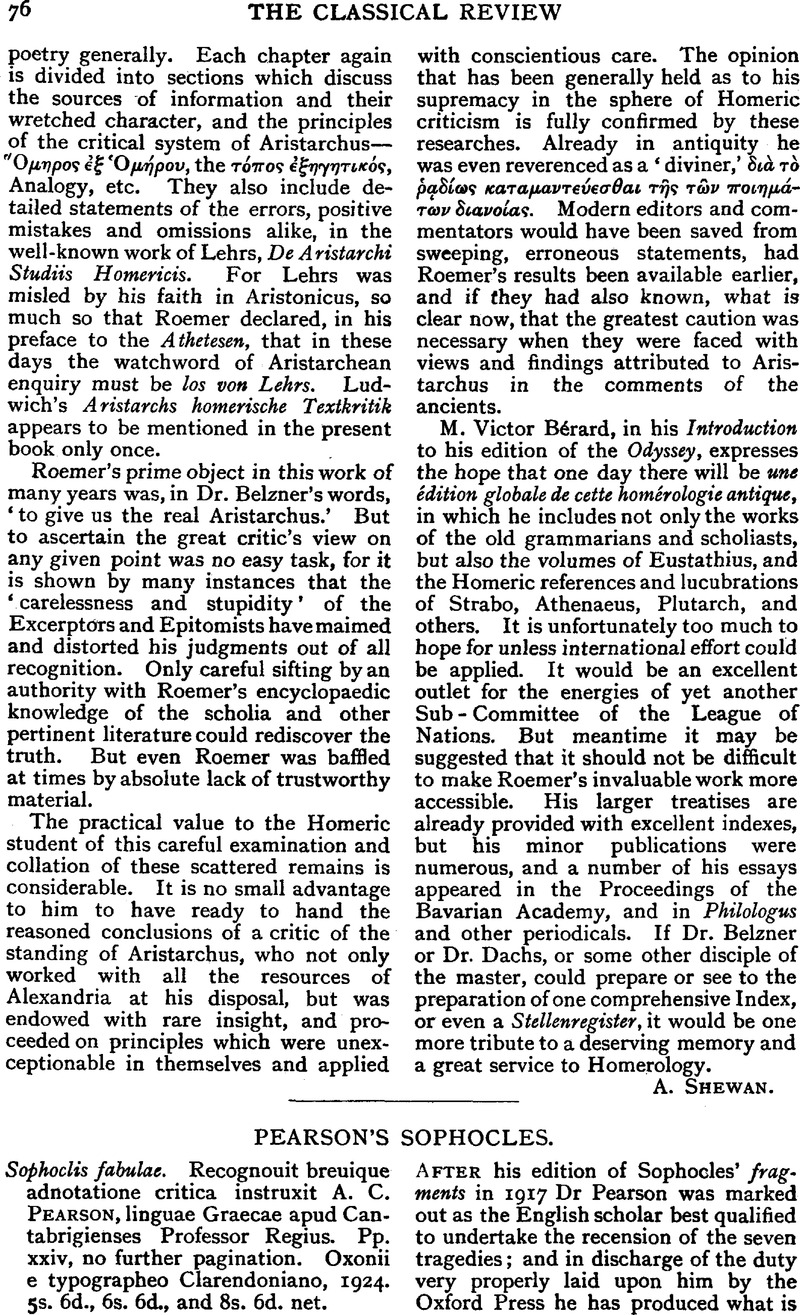No CrossRef data available.
Published online by Cambridge University Press: 27 October 2009

page 78 note 1 ![]() is no better than a piece of scholars' slang which usually crops up in prefaces and will be found on p. xv of Dr Pearson's, indoles codicum. Codices have no indoles, a term implying capacity of growth and development: Plautus' use of the word in rud. 424 is playful, and he means you to connect it with olere and odor.
is no better than a piece of scholars' slang which usually crops up in prefaces and will be found on p. xv of Dr Pearson's, indoles codicum. Codices have no indoles, a term implying capacity of growth and development: Plautus' use of the word in rud. 424 is playful, and he means you to connect it with olere and odor.
page 79 note 1 I understand his reason, but it is insufficient: see for instance Ai. 852 f.
page 79 note 2 δυσθνῄσκω is no verb: Euripides compounded δυσ with θνῄσκων, treating the participle as an adjective, which certainly was reprehensible enough; and it seems that someone played the same trick with δυσ and τοπ⋯ζων, misled by δυστ⋯παστος. The derivation of δυσο⋯ζω is unknown, but its meaning shows that it is not from οἴζω.